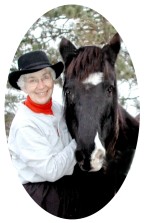That “gut feeling”
may be smart!
“Street smarts” and paying attention to the “oh oh” feeling in your gut may protect you from being a victim. And keep in mind that there may be more danger in rural areas because there’s no one around.
This is not just for kids... so pay attention college-bound students and adults too!
Alison was a classmate of 12 year-old Jacob Wetterling when he was kidnapped over 25 years ago. She is working to create a world safe for children.
Be smart... not scared.
Alison avoids fear-based approaches and instead teaches you to be smart and not scared. It has been found that the teaching of “Stranger-Danger” doesn’t work, she explained. You see it’s likely that the child may know the perpetrator... like a baby sitter, family member, friend, etc.
So now children are asked to think about how they feel about a person... does the person give you an “oh-oh” feeling? Or ask you to break your rules? Or keep a secret?
What was the danger?
The unsolved case of Jacob Wetterling
 began when he and two friends called his parents who were at another friend’s house to see if they could ride their bikes a short distance to rent a video from a store. The parents main concern was the danger from cars. After getting permission the boys were almost back home when a man with a mask and a gun stopped them on the road. Two of the boys were told to run and if they stopped he would shoot them.
began when he and two friends called his parents who were at another friend’s house to see if they could ride their bikes a short distance to rent a video from a store. The parents main concern was the danger from cars. After getting permission the boys were almost back home when a man with a mask and a gun stopped them on the road. Two of the boys were told to run and if they stopped he would shoot them.
 began when he and two friends called his parents who were at another friend’s house to see if they could ride their bikes a short distance to rent a video from a store. The parents main concern was the danger from cars. After getting permission the boys were almost back home when a man with a mask and a gun stopped them on the road. Two of the boys were told to run and if they stopped he would shoot them.
began when he and two friends called his parents who were at another friend’s house to see if they could ride their bikes a short distance to rent a video from a store. The parents main concern was the danger from cars. After getting permission the boys were almost back home when a man with a mask and a gun stopped them on the road. Two of the boys were told to run and if they stopped he would shoot them.
They scrambled off but at a distance looked back and saw the man had his hand on Jacob’s shoulder and was leading him away.
Over the years there have been many leads. Some have been distracting. For example the tire tracks at the crime scene.
Many years later, the man whose vehicle had made the tracks realized that he should let the police know that he had heard the problem on his police scanner and arrived at the scene before law enforcement got there. Those were his tracks!
About 300 leads came in last year after a nationwide television story about the anniversary of Jacob’s disappearance. Alison assured the audience that they will keep on searching for Jacob.
What can you do?
But what should you know today?
Build a safety net - have five adults that you or a child can trust. This can be a teacher, parent, etc. And if one of them doesn’t pay attention, just keep on telling your story until someone does. You don’t have to be embarrassed.
Adults are advised to be interested in the child. One perpetrator would sit by an elementary school and watch when parents were picking up their children. If he saw that the parents would ask their child what they did at school that day, he wouldn’t touch them. But when he saw kids whose parents just picked them up and drove away... he would track them. They might need attention... and he would give it to them.
Then there’s the internet. Be careful about the images or words you post. Ask yourself, would you want them on a highway billboard?
Creepy scenarios...
Have a family game night where you set up creepy scenarios before they happen. This could be fun in a college dorm room too! Come up with a variety of solutions. Example: If a friend gives you $20 but asks you to keep it a secret... what problems can you think might occur?
Or: what if you had a friend who told you that an adult chaperone from a school trip was pressuring her to spend time at his house alone? How could you help her?
Have a code word, like “popcorn”, that will alert your family or friends if you are getting into a difficult situation.
I bet you can think of other scenarios that would be fascinating too. Stay safe!


